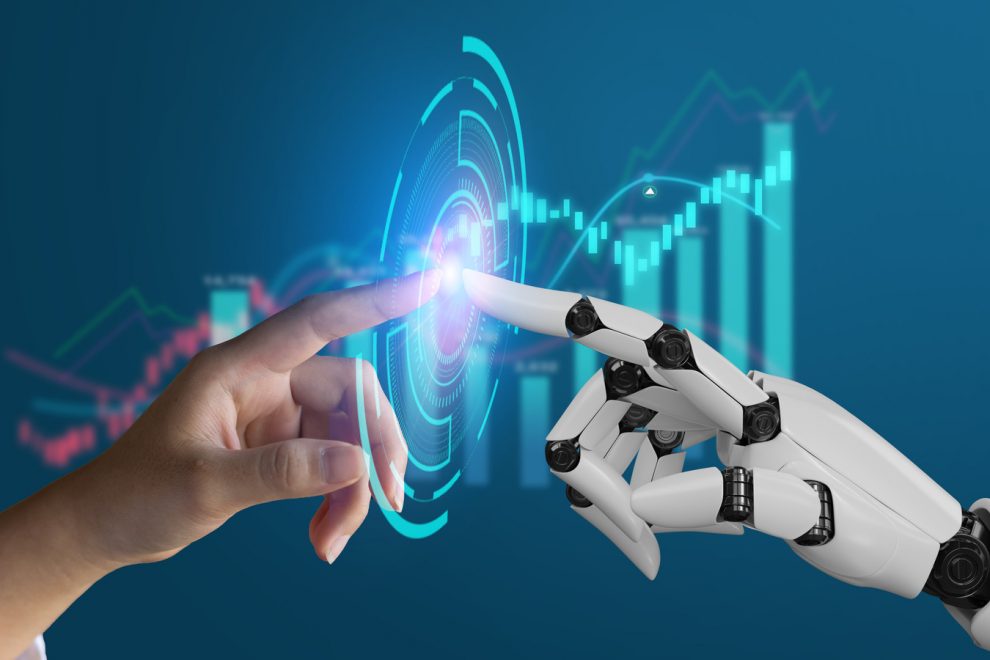Top 5 Medical AI Tools for 2024: AI in Healthcare Examples
1. Merative
In 2024, Merative—previously known as IBM Watson Health—emerged as the industry’s top data, analytics, and technology partner.
After rebranding and being acquired by Francisco Partners, Merative has established itself as a leading provider of AI solutions for healthcare, providing payers, governments, healthcare providers, and life sciences businesses with a carefully chosen range of AI applications.
Key Capabilities and Features of Merative
- Provides a large selection of AI applications for different medical specialties, such as neurology, thoracic, musculoskeletal, breast imaging, and triage.
- Designed to minimize interference with processes and workspaces by integrating seamlessly with current imaging systems.
- Contributes extensive knowledge of PACS systems, archives, viewers, and vendor-neutral AI applications that have received regulatory clearance.
2. Enlitic
Thanks to its AI-powered solutions, Enlitic, a well-known healthcare IT business, has greatly enhanced healthcare workflows.
The company’s core product, the Enlitic Curie platform, standardizes data, streamlines workflows, and increases productivity to address the most important issues facing the sector. Enlitic leverages artificial intelligence (AI) to give healthcare practitioners instant access to the full potential of their data.
Enlitic offers time-saving solutions that improve patient outcomes while freeing up doctors and radiologists to focus on their primary duties by addressing the complete clinical workflow rather than just one aspect of it.
3. Regard
Regard seeks to increase physician satisfaction, raise patient safety standards, and improve hospital budgets by incorporating artificial intelligence into healthcare procedures.
The company’s technology streamlines clinical procedures and promotes well-informed decision-making by using AI to automatically examine patient data, produce precise diagnoses, and produce thorough documentation for doctors.
The platform from Regard provides a comprehensive picture of a patient’s health by compiling important data onto a single, conveniently accessible page. With the help of this complete analysis, doctors may make accurate and detailed diagnoses by identifying probable problems based on the patient’s medical history.
4. Viz.ai
Viz.ai is a healthcare technology startup that was established in 2016 with the goal of using AI to improve care coordination and decrease systemic delays in the medical field.
Viz.ai uses artificial intelligence (AI) to analyze medical images and give healthcare practitioners automated assessments and real-time insights, with the goal of expanding access to life-saving treatments.
Viz LVO, the company’s flagship product, is a prime example of the enormous potential of AI in the medical field. Viz LVO uses cutting-edge deep learning algorithms to provide urgent information about stroke victims to experts so they can act quickly and treat them.
5. DeepScribe
DeepScribe’s fully automated AI medical scribe has emerged as the most widely adopted ambient AI scribe in healthcare, designed to streamline clinical documentation, improve patient care, and alleviate clinical burnout.
With thousands of clinicians benefiting from its platform, DeepScribe is transforming how healthcare professionals approach medical documentation and patient care.
One of the key strengths of DeepScribe lies in its comprehensive set of capabilities. The platform supports dictation, allowing clinicians to dictate notes that are automatically transcribed into clinical documentation.
Additionally, DeepScribe integrates with electronic health records (EHRs), importing patient data to provide context for the documentation process.
The Potential of AI in Healthcare
AI integration in healthcare has created a plethora of opportunities and has the potential to revolutionize patient care, medical research, and healthcare administration.
Some of the technologies on this list demonstrate how AI has already significantly improved the way that healthcare is delivered in a number of ways. Artificial intelligence (AI) has the potential to greatly improve the delivery of healthcare by speeding up medical research and medication discovery, boosting diagnostic accuracy, and improving patient outcomes.
The potential of artificial intelligence (AI) to customize medicine by utilizing enormous volumes of data, such as genetic data, clinical trial findings, and patient records, is one of the most intriguing developments in the healthcare sector. AI-powered diagnostic tools can aid in closing the access gap to healthcare, especially in poor areas where there may not be as much access to specialized knowledge.


















